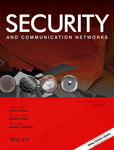ReDD: recommendation-based data dissemination in privacy-preserving mobile social networks
Abstract
Mobile social network (MSN), which is built upon popular smart phone devices and enables mobile users with similar interests to connect with one another, has received considerable attention in recent years. A common phenomenon that makes the MSN vivid today is mobile users often like to share attractive things to their friends in MSN. In this paper, based on this common phenomenon, we propose an efficient recommendation-based data dissemination (ReDD) protocol for MSN, which can efficiently disseminate high-quality messages in a privacy-preserving way. Specifically, in the proposed ReDD protocol, each mobile user, based on both his or her own view and his or her friends' recommendations, will form his or her personal estimation on the quality of a message. Only if the estimation of quality reaches a threshold, the message will be disseminated. In this way, high-quality messages can be widely spread in the network and occupy more network resources than low-quality ones. In order to check the validity of friends' recommendations, ReDD also employs an efficient anonymous authentication technique, which ensures that only the friends of a user can verify recommendations made by the user. Detailed security analysis demonstrates that ReDD can effectively resist various attacks launched by attackers and ensure identity privacy of nodes, confidentiality of shared keys and integrity of data packets. In addition, extensive simulations are also conducted to evaluate the performance of ReDD in terms of the number of active nodes and the average active time, and the simulation results show that high-quality messages can be disseminated widely and efficiently, while low-quality ones will be eliminated shortly to avoid occupying network resources. Copyright © 2014 John Wiley & Sons, Ltd.




